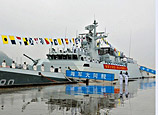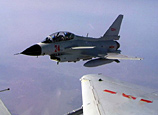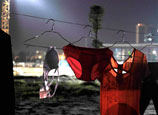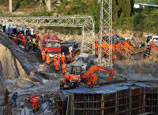
KATHMANDU, May 21 (Xinhua) -- Bhavuk Sharma Bajagain, 30, a medical doctor by profession, is often busy with his patients in the emergency ward of Kathmandu Model Hospital, one of the more reputable hospitals here.
In the morning, Dr. Bajagain also teaches and shares his medical experience with students in two different local medical institutions. "I am very happy and satisfied when I see my patients relieved of pain after treatment," Dr. Bajagain told Xinhua on Monday. "Had I not been given the opportunity to study at the world class Sichuan University of China, I would not be doing well here."
Dr. Bajagain is one of the medical graduates of 2007 batch from Sichuan University, one of the oldest national universities in China. Located in Chengdu, it is ranked eighth among the Chinese universities according to the 2010 Academic Ranking of World Universities.
Similarly, Amrit Upreti, 25, a medical intern, currently studying Bachelor of Medicine, Bachelor of Surgery (MBBS) in Weifang Medical University based in Weifang City, Shandong province of China, is grateful to the university that offered him scholarship to fulfill his dream to be a doctor. "Theory classes are quite interactive and more technology friendly using presentation slides but it is a little difficult in practical session due to language barrier," Upreti told Xinhua.
However, Upreti lamented that some Nepali students in China are not serious in their studies and just enroll in the university without studying their lessons. "I can see many Nepali students who prefer to do part-time jobs rather than in learning medicine seriously," he said.
The reason behind the consistent weak performance by Nepali students who have graduated from Chinese medical schools in Nepal' s professional licensing exams is laxity in the giving of pre- qualifying examinations for students seeking to study abroad, particularly in China.
More than 300 Nepali students enroll in medical faculty of various universities every year in China, one of the popular destinations among Nepali students seeking higher education in medicine abroad. China has become a major destination for Nepali students due to low cost of education as well as universities' offers to receive fees in installments. But the problem is that Nepali students often go to China even after failing in the MBBS entrance test in Nepal.
A five-and-half-year MBBS course in Nepal costs some 47,000 U.S. dollars, while in China it costs only about 29,000 U.S. dollars. Bangladesh, India, Pakistan, Russia and the Philippines are other popular destinations for aspiring Nepali medical students. Dr. Bansidhar Mishra, executive director of Manmohan Memorial Institute of Medical Sciences, also believed that a mandatory entrance test system to scrutinize students before letting them join foreign universities need to be strengthened. Every year around ten students study through government scholarship in China and they are doing well even if they are taught in Chinese language.
















 University doors open for its security guards
University doors open for its security guards


![]()
